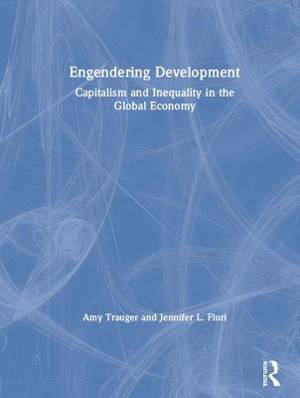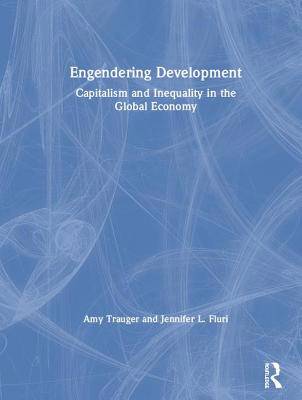
- Retrait gratuit dans votre magasin Club
- 7.000.000 titres dans notre catalogue
- Payer en toute sécurité
- Toujours un magasin près de chez vous
- Retrait gratuit dans votre magasin Club
- 7.000.0000 titres dans notre catalogue
- Payer en toute sécurité
- Toujours un magasin près de chez vous
Engendering Development
Capitalism and Inequality in the Global Economy
Amy Trauger, Jennifer L FluriDescription
Engendering Development demonstrates how gender is a form of inequality that is used to generate global capitalist development. It charts the histories of gender, race, class, sexuality and nationality as categories of inequality under imperialism, which continue to support the accumulation of capital in the global economy today.
The textbook draws on feminist and critical development scholarship to provide insightful ways of understanding and critiquing capitalist economic trajectories by focusing on the way development is enacted and protested by men and women. It incorporates analyses of the lived experiences in the global north and south in place-specific ways. Taking a broad perspective on development, Engendering Development draws on textured case studies from the authors' research and the work of geographers and feminist scholars. The cases demonstrate how gendered, raced and classed subjects have been enrolled in global capitalism, and how individuals and communities resist, embrace and rework development efforts. This textbook starts from an understanding of development as global capitalism that perpetuates and benefits from gendered, raced and classed hierarchies.
The book will prove to be useful to advanced undergraduate and graduate students enrolled in courses on development through its critical approach to development conveyed with straightforward arguments, detailed case studies, accessible writing and a problem-solving approach based on lived experiences.
Spécifications
Parties prenantes
- Auteur(s) :
- Editeur:
Contenu
- Nombre de pages :
- 172
- Langue:
- Anglais
Caractéristiques
- EAN:
- 9780415789660
- Date de parution :
- 30-05-19
- Format:
- Livre relié
- Format numérique:
- Genaaid
- Dimensions :
- 189 mm x 246 mm
- Poids :
- 611 g

Les avis
Nous publions uniquement les avis qui respectent les conditions requises. Consultez nos conditions pour les avis.






